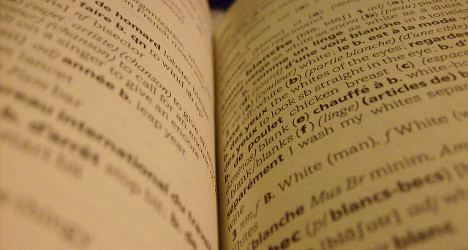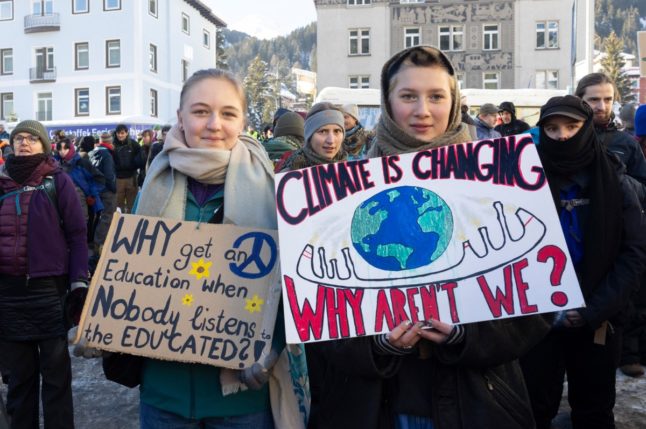Swiss-German may be the dominant language in Switzerland, but nearly a quarter of the population say French is their main language.
In fact, French is the main language spoken in the cantons of Geneva, Vaud, Neuchâtel, and Jura, while it shares official language status with German in the cantons of Bern, Valais and Fribourg.
But while there are a great many commonalities, the French spoken in Switzerland is not the same as that spoken in the ‘Hexagon‘.
Read also: The 21 most annoying false friends in French
From Swiss people’s super-clear pronunciation (their long vowels make it sound like they are talking more slowly) to their much more straightforward way of saying any number over 70, there are many things the francophone Swiss could teach their neighbours over the border.
1. Numbers are so, so much easier
Enough with having to make a mental calculation before you can say 93 in French. While Parisians grapple with quatre-vingt-treize (four twenties and 13), the Swiss cut to the chase with nonante-trois (ninety-three). So follow their lead and scrap the French soixante-dix (70), quatre-vingt (80) and quatre-vingt-dix (90) for septante, huitante, nonante (Note there are regional differences among French-speaking cantons of Switzerland when it comes to these numbers).
2. Franglais works
The Swiss are partial to a spot of franglais, just like the rest of us. No need to garer your car in Switzerland, you can parquer instead. Then perhaps pop into a tea room.
3. You can look forward to things
Yet to devise a satisfactory way of saying they are looking forward to doing something, we can only conclude that the French don’t really look forward to much at all. But the Swiss do, employing je me rejouis de… to express their happiness at a forthcoming event.
4. You can order a coffee upside down
Well, not literally. But the Swiss word for a café au lait (a coffee with milk) is the cute renversé, which specifies that the milk should be put in first, much in the manner of old-fashioned English tea drinkers.
5. Service is service
Admittedly, service in Switzerland isn’t always the best, or to everyone’s taste, but while their actions may not be the quickest, politest or happiest, Swiss bartenders, shop workers and waiters are certainly quick and polite when it comes to acknowledging your merci. Instead of the ultra-formal French Je vous en prie, you’ll often hear the simple Service (meaning “at your service”). Sometimes you even get a smile with it.
6. There’s nothing small about breakfast
The French-speaking Swiss don’t have a petit-déjeuner for breakfast but a full-on hearty déjeuner – which the French call lunch. Just to confuse those over the border a bit further, come to Switzerland for dîner and you’ll be having lunch not dinner, while a Swiss evening meal is closer to the British supper, souper. And if you’re in the countryside around tea time, you might just get invited for a quatre-heures, a sort of high tea at – you guessed it – 4pm.
7. They speak clearly
Newcomers may not understand everything they say all the time, but at least you can hear the words (check out the video below). Unlike typical French mumbling, French-speaking Swiss speak noticeably more clearly. So while you may not know what a natel, a cornet or a carnotzet* are, you could probably spell them.
*a mobile phone, paper/plastic bag and a wine cellar



 Please whitelist us to continue reading.
Please whitelist us to continue reading.
Great article. Couldn’t agree more about the numbers.
Quick point, I think that a carnotzet is a separate room, often in the cellar, for eating melted cheese. This supposedly keeps the odors out of the rest of the house.